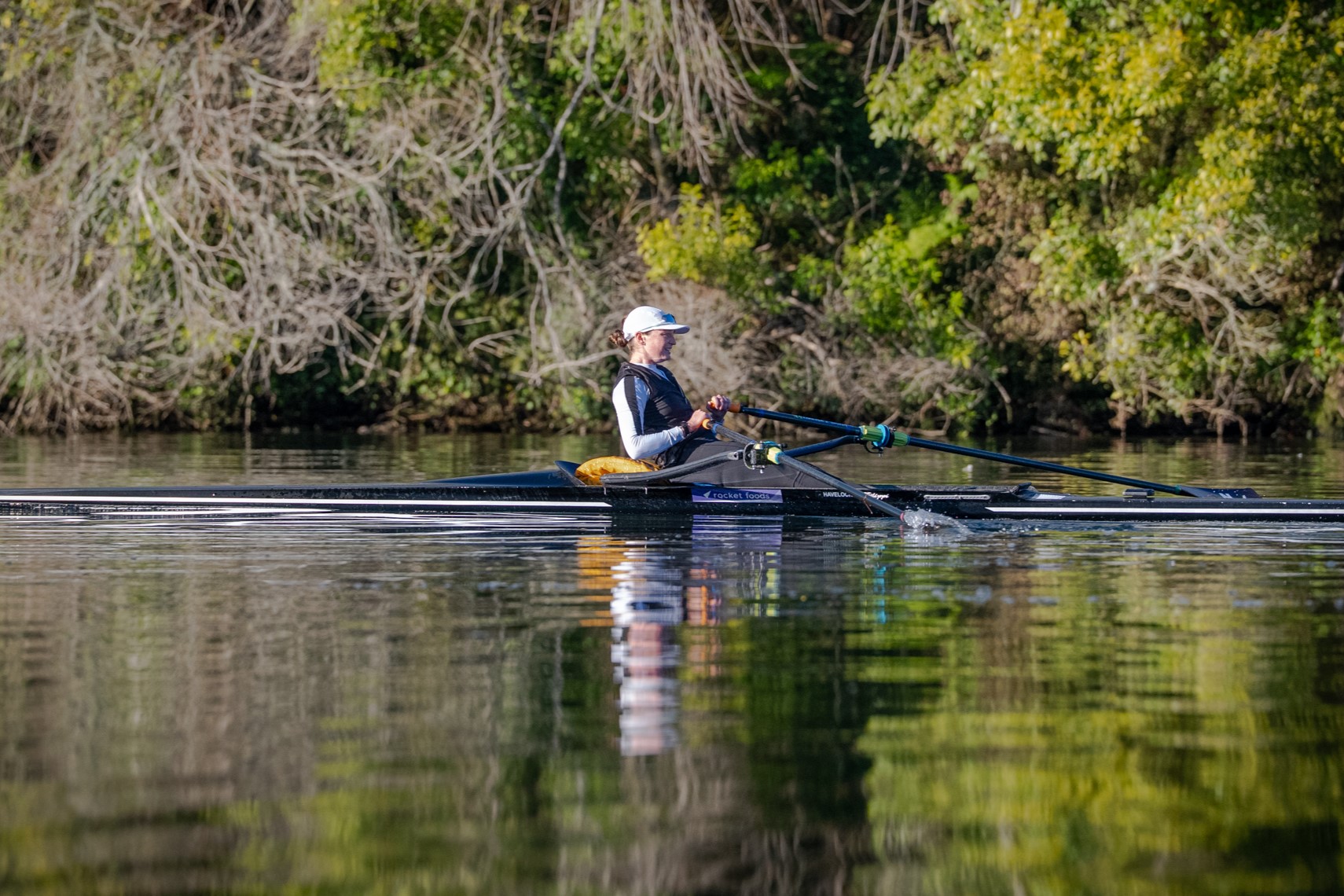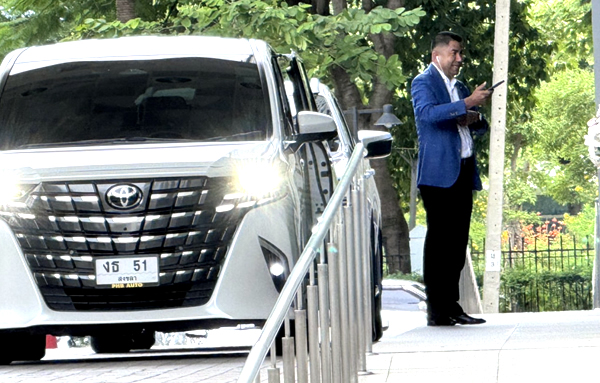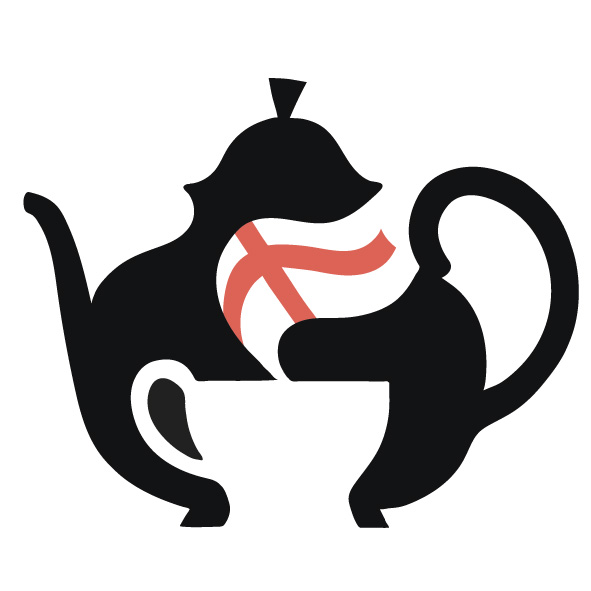By Suzanne McFadden
Copyright newsroom

Every tattoo on Isla Blake’s skin tells a story. Inked along her powerful arms and legs are small designs she’s created – a few she’s even tattooed herself.
But the 26-year-old rower has saved space for the story she’s still chasing – the five Olympic rings.
Blake has taken an unconventional path to wear the black suit of New Zealand rowing. An experienced barista with a degree in environmental and ocean sciences, and a campaigner against fast-fashion, she’s now giving the sport her “best crack” – aiming for a seat in an Olympic boat.
This weekend, she’s in Shanghai, about to race at her first world championships and make history. While her main event will be the women’s coxless four, Blake is also a part of the New Zealand mixed eight – a world-first addition to the regatta, that could be a gamechanger in the sport.
Balancing a crew of four women and four men is an art in itself, says Blake, who sits in the bowseat of the eight – tasked with finishing the rhythm and keeping the boat steady. It’s a seat that demands precision and technical skill.
“It’s about harnessing the power the men bring to the boat, while holding onto the finesse that women typically have in their stroke,” she says. “I’m not saying the men don’t have finesse – they definitely do. But because we’re not built the same, we don’t have the same power, so we have to find those extra percents through the way we row.”
World Rowing floated the concept of mixed crews for the Olympics as a way to promote gender equality and bring a new energy to the sport. While it was deemed too soon to introduce the mixed double and eight at the Los Angeles Games in 2028, the target is now Brisbane 2032.
“It will be interesting to see how it goes, being such a new event,” Blake says. “And it will be fun to do something with the guys. We travel around the world together and all get on really well, but at regattas, we’re locked into our own crews. During race week, we typically see everyone at dinner and chat then, but at the boat park you’re definitely on your own page, focused within your own crew.”
The women in the crew – Blake, Juliette Lequeux, Becky Leigh and Paris Olympian Alana Sherman – are also racing together in the women’s coxless four in Shanghai. A relatively new combination, they showed strong potential in this year’s World Cup series – ending with a bronze medal in Lucerne.
“It’s definitely exciting. It does add a lot of stress to your life, but I don’t know what I’d be doing without it. I feel like I’d just be creating stress in some other environment. So, I may as well do it in the one that I love,” Blake says.
Growing up, Blake always wanted to do whatever her older sister, Mirren, was doing.
“I’m sure I probably irritated her,” she laughs. “I saw her row at the Hamilton Rowing Club and thought I’d love to give it a try – and I haven’t stopped since.
“It’s a weird sport – you get drawn in and you either love it or hate it. If you love it, I guess it’s a good thing to be consumed by.”
Although Blake went to Hamilton Girls’ High School, where she was a cross country champion, she never rowed for them – choosing instead to compete with the Hamilton club. Her only Maadi Regatta experience came after a “quick switch” to Fraser High School for a term.
“I wanted to make the Under-18 North versus South team, the first step on the [Rowing NZ] pathway,” she says. “One requirement was competing in secondary school events. Fraser didn’t have a huge rowing team, but they rowed out of Hamilton Rowing Club. I went back to finish my schooling at Girls’ High.”
Making the North team opened the door to the Waikato Regional Performance Centre summer squad. But after missing out on national junior honours, Blake began to rethink her future.
“I wanted to be rowing, but I couldn’t afford to row, work, live, and do university without burning out. Something would have to give,” she says. “But going to university in the States sounded like the ideal option – where I could do all of that and have a different experience.
“It was a bit scary – I felt like I was giving up my dream to row for New Zealand. But I ended up going to the US and loving it.”
Blake took up a scholarship at the University of San Diego, where she studied environmental and ocean sciences, and excelled on and off the water. She won conference titles in the varsity eight, and raced in major regattas, including the prestigious Head of the Charles in Boston.
“We weren’t the fastest uni for rowing in the States, but it was an amazing experience,” Blake says. “And by the end I realised I wasn’t done with rowing. I decided to come back and give it a proper crack.”
When Blake returned to Cambridge in 2022, she found work as a barista while chasing her rowing dream. Strong performances across the women’s sweep events earned her a place in Rowing NZ’s 2023-24 summer squad.
In a pair with Lequeux, she came under the guidance of legendary rowing coach, Dick Tonks – and together they began hauling in titles.
Lequeux and Blake now flat together in a beautiful old home overlooking Lake Karapiro.
“It’s across the road from training; it’s pretty epic,” Blake says. “I’d love to say I walk every day to training, but it’s still like a kilometre or so down the driveway. And the amount of time we spend training every day, I just need to get home and rest.”
She knows the intense effort she and her crewmates are putting in is paying off. The coxless four finished fourth at the World Cup in Varese, Italy, in June, and went on one place better in the next cup regatta in Lucerne a fortnight later.
“We were really stoked with how we not only gave it a good first crack in Varese, then managed to step on again in Lucerne. Everything felt like it fell into place,” Blake says.
“But world champs will be another huge step on. You ride the high for a minute, and then you’re like, ‘Right, we’re back in the boat’. We’ll continue to work hard right up until our race.”
With a string of Olympic rowers taking 2025 off, the door has opened for the next generation – Blake, Lequeux and Leigh – to prove themselves on the world stage. They measure their progress against high standards: Jackie Gowler, Phoebe Spoors, Davina Waddy and Kerri Williams won bronze at the Paris Olympics.
“We can track our progression, then compare it to the data of the previous crews, some legends in the sport. Then it’s like, ‘Okay we’ve got a way to go!’” Blake laughs. “It keeps you accountable, and it keeps you wanting more.”
Leigh keeps the new four in line. “Becky’s a couple of years younger than us, but she acts like the mother of the crew. To be fair, she really holds us together,” Blake says.
“She’s always on top of everything and running our crew, making sure we’re get the carbs we need to consume on the water. She’s really brought a new energy to the four.”
Blake has made a point of keeping her brain busy outside rowing, returning to her environmental roots. She volunteers at Go Eco, the Waikato Environment Centre, where she helps with admin and contributes to the Derail Consumerism campaign – highlighting the social and environmental costs of fast fashion. “I’ve always been a great thrift shopper,” says Blake, who created a pop-up thrift shop on the University of San Diego campus.
The Olympics are Blake’s ultimate goal – but she’s learned not to expect a straight path to get there.
“Year to year, season to season, there are so many factors involved in whether the improvement happens, or whether you stay healthy; you never really know what’s in store for you,” she says. “But if you don’t try and chase your dreams, you just end up regretting it.”
Then, perhaps, more body artwork – the iconic Olympic rings. “The girls have been asking if I’ll get them drawn plain,” Blake says. “But I’m like ‘We’ve got to get ourselves there first’. That’s the first goal. We can worry about the tattoo later.”



